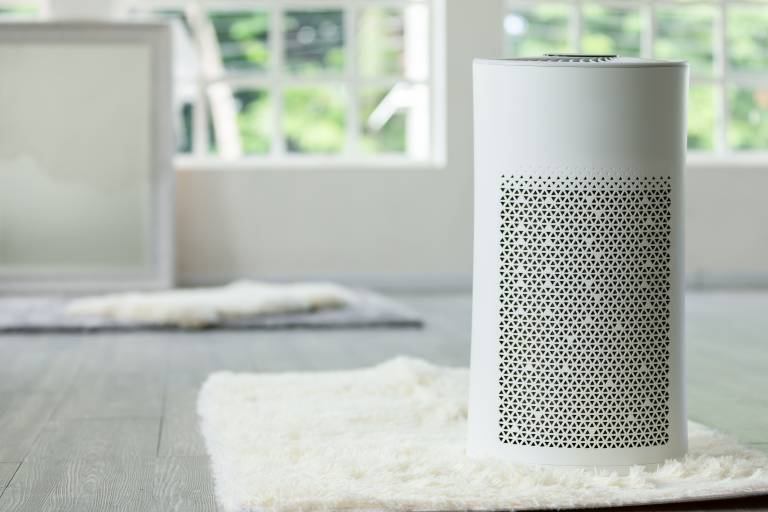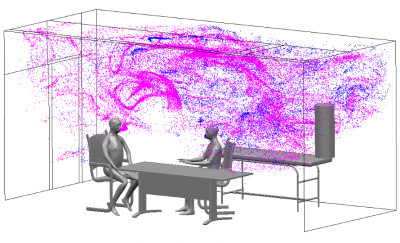Portable air purifiers could help to reduce transmission of Covid-19
15 December 2021

Researchers from the Wellcome / EPSRC Centre for Interventional and Surgical Sciences, UCL Department of Mechanical Engineering, University of Bristol and UCLH have been examining how cheap portable air filters may hold a key to reducing patient wait times as a result of the pandemic.
Laurence Lovat, Professor of Gastroenterology and Biophotonics at UCL, points out that patients are nervous to return to hospitals for fear of catching Covid-19. Aerosol particles are droplets generated from expiratory events such as breathing, talking and coughing. They play a critical role in the transmission of infectious respiratory diseases, such as Covid-19. Reducing droplet spread is essential for infection control, particularly in high-risk environments such as hospitals.
"Hospital building engineers are working very hard to find ways to make hospitals safer for staff and patients alike", says Lovat. Ventilation is a key mitigation strategy to reduce aerosol accumulation. But many hospital consulting rooms have poor ventilation which has resulted in reduced capacity to allow for ‘clearance time’ between patients. In some specialities such as ENT, this significantly limits patient turnover rate, and increasing room capacity would have a large impact on reducing patient waiting times. But higher air exchange rates also increases energy consumption of buildings and the number of maintenance incidents. This has a direct implication on the environmental footprint of hospital buildings.
One proposed solution is to use portable air purifiers. Air purifiers containing high-efficiency particulate absorbing (HEPA) filters to provide a cost-effective solution to the poor air ventilation problems faced in many hospital consulting rooms.
Using computational fluid dynamics, the researchers built simulations of UCLH consulting rooms to test the effectiveness of air filters on air clearing. These simulations include two people to mimic the patient-healthcare provider environment.
Overall, the researchers showed that the use of air purifiers can remove up to 40% of potentially infective particles with a single small desktop HEPA filter. This increases to at least 62% if two purifiers are used. They also examined the importance of the positioning, and found that the filters were most effective when positioned around the same level of breathing (i.e. on a table).

Computer simulation showing the droplet distribution in a room with air con and a filter placed on a table
Team member Manish Tiwari, Professor of Nanotechnology said "Local mitigation devices such as portable air purifiers may have a substantive role in removing aerosol particles from hospitals rooms. This is cost-effective, rapidly deployable, and, given its potential to reduce patient backlogs in the NHS, we should test the idea in a variety of different hospital settings."
Dr Ruth Epstein, co-chair of the voice and swallowing unit at UCLH commented that the 'Safe Air Study’ would significantly reduce waiting lists by making clinical space available, currently deemed unsafe.
These results point to a simple way to increase patient capacity, which will help to reduce the long patient wait times as a consequence of Covid-19. In future work, the researchers will be examining the effectiveness of air filters in waiting areas and hospital wards.
Read more in their recent pre-print paper.
 Close
Close

